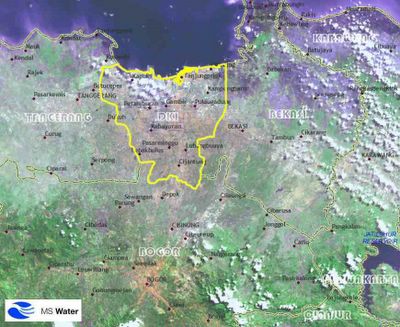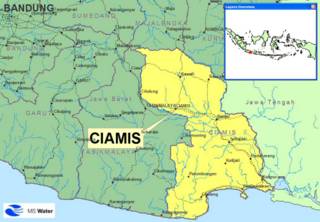Sutiyoso defends water charge increase
Source: The Jakarta Post
Damar Harsanto, The Jakarta Post, Jakarta
The Jakarta administration has played down criticism over the recent tap-water rate increase, arguing the decision was fair to both poor and wealthy customers.
"You judge yourselves whether it is fair or not to allow richer customers to bear the higher rate of up to Rp 12,000 per cubic meter of tap water, compared to the meager rate of Rp 900 for the poor, which is lower than similar rates applied in other cities nationwide," Governor Sutiyoso said on Friday.
The administration announced last week an increase in tap water tariffs, ranging from 5 percent to 63 percent, starting July 1.
The tap water fee for "modest" homes, as well as for social and religious foundations, like orphanages, mosques and churches, has increased by 63 percent, from Rp 550 to Rp 900, while for bigger houses, the fee has been raised by 8 percent to 11 percent, from Rp 5,100 and Rp 7,500 to Rp 5,700 and Rp 6,800 -- depending on water consumption.
A 6 percent increase, from Rp 9,750 to Ro 10,400 has been imposed on industrial and commercial enterprises, like hotels and restaurants. Customers classified as "special zone", including the Tanjung Priok port, are facing a 5 percent increase, to Rp 12,150 from Rp 11,500.
Sutiyoso said the rate paid by high-end customers had been too steep, so a slight increase for them had been decided upon.
"Since the tap water rates paid by the poor are cheaper than those paid by other poor residents in other cities across the country, like Semarang and Banjarmasin, we decide on a higher increase. I am sure they (Jakartans in the low-income bracket) will be able to afford the increase," he said.
The rate for low-income households and social and religious foundations in Semarang hovers at Rp 1,347, while in Banjarmasin in East Kalimantan it stands at Rp 948.
City Council speaker Ade Surapriatna said the council had rejected the increase as it burdened people in the low-income bracket.
"We are also opposed to the increase as the administration did not consult the council over the plan," he said.
He said the council had formed a team to study the tap water business in the city. The council is also seeking, through the team, to modify legislation issued by former speaker Agung Imam Sumanto -- whose term was from 1999 to 2004 -- that allows the administration to raise tap water rates every six months until 2007.
The latest increase is the second in a series of 10 planned raises, which were conceived as part of efforts to pay off city-owned tap water operator PAM Jaya's debts.
On Jan. 20, the administration covertly increased tap water rates by between 4 and 16 percent.
The company owes around Rp 600 billion to its two foreign partners, British PT Thames PAM Jaya and French PT PAM Lyonaisse Jaya, and Rp 1.6 trillion to the Ministry of Finance.
Palyja, a subsidiary of France's ONDEO (formerly Lyonaisse des Eaux) serves customers in the western part of Jakarta, while TPJ, a subsidiary of Britain's Thames Water International, supplies tap water to customers in the eastern part of Jakarta.
Read more!(Selengkapnya)





